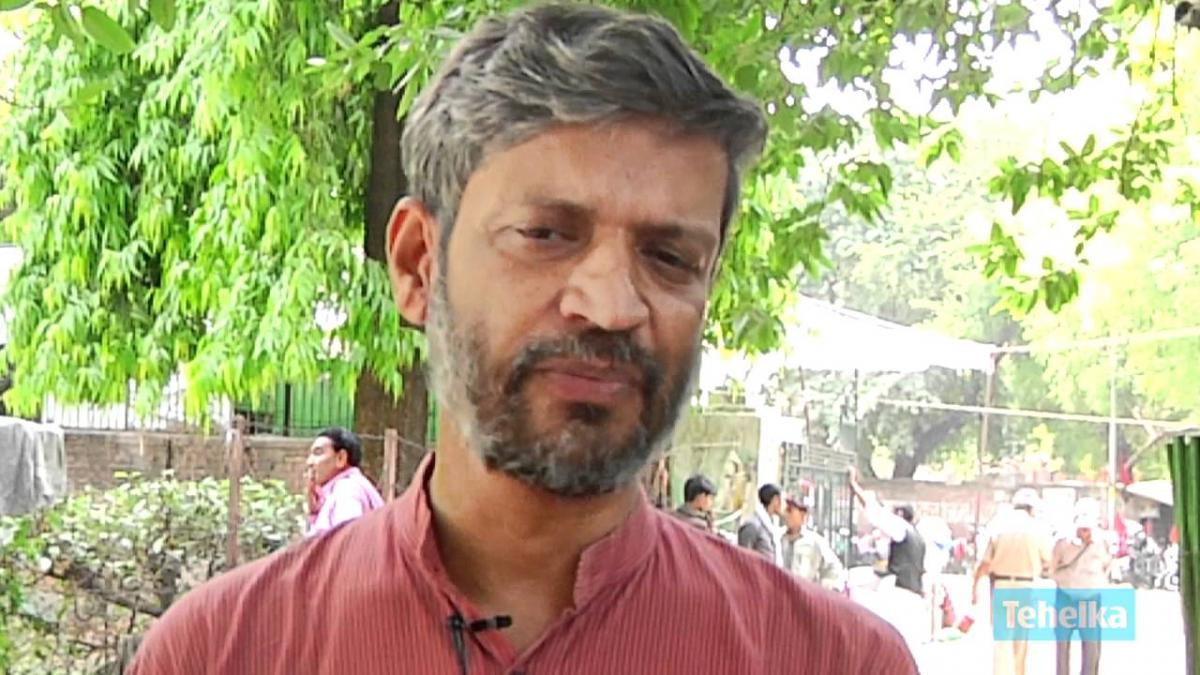Social Activists Nikhil Dey, Naurti Bai, Ram Karan, and Chotu Lal are acquitted in the RTI case in Harmara following a conviction of trespass and causing hurt .

Image: Tehelka
As the four RTI activists filed their appeal against their conviction, in the Court of the ADJ in Kishangarh, the complainantsapproached them, offering to withdraw the case. Thecomplainantsstated that they wanted to compound the case to put an end to a continual and unnecessary dispute. Theformal application, signed by the complainantswas to be placed in the ADJ court, requesting the withdrawal and the “compounding” under section 320 of the CRPC; (deemed acquittal) of the case. The application stated that since no dispute or issue existed any longer, the two affected persons Omprakash and Manisha,(brother and niece of the erstwhile Sarpanch) would in the interest of putting an end to continued animosity and dispute, and withdraw the case to conclude the matter.
The formal application was signed in the presence of theADJ jointly by the appellants and the complainants;and accepted under section 320 of the Criminal Procedure Code( CrPC). Accordingly an order was passed acquitting the accused (copies enclosed) based on the signed agreement (rajinama) . The two separate ordersof the ADJ set aside the conviction of NikhilDey, Naurti Bai, Ramkaran and Chotu Lal acquitting them from all charges under sections 451 and 323 of the IPC. The Court passed orders on 12th July 2017. Copies of court orders were received in the last week of July, 2017.
For the MKSS and the RTI community this has come as a relief from a 19 year longtrial- and a conviction. Both the process of the trial, and the conviction was a regrettable miscarriage of justice. (See earlier press note attached). We saw our continued effort to prove our innocence of both motives and action as part of our struggle for ethics and justice, andwere confident that this casewould end in an acquittal. This entire sequence of events has unraveled and reinforced the understanding of how such cases can be used as weapons of attrition to harass activists and distract them from their essential work of fighting corruption, and demanding justice for marginalized and oppressed communities.
public concern, apart from the individuals concerned, the people of the area, and society knows where the truth really lies. Therefore, the mutual end to hostilities is an assurance that resolutions may also lie in non-judicial processes, in this long struggle against corruption and arbitrary use of power by vested interests.
This long experience has made us even more determined to continue with our efforts to make sure that human rights and civil rights activists, RTI users, whistleblowers etc receive solidarity and support. The concern will have to be addressed especially through the setting up of institutional mechanisms. This will have to be supported by civil society groups to monitor and expose misuse of power, particularly the failure of executive structures to guarantee the rule of law, which will continue to be an ongoing concern.”
Naurti Bai, Nikhil Dey , Ram Karan and Chotu Lal